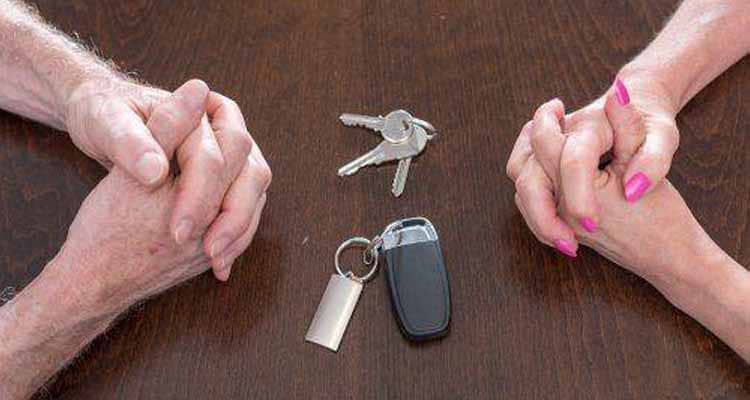My tiny salary would cover the rent of an apartment with a narrow staircase and dog poop on the ground floor, or a dark house that shared its walls with neighbouring houses and had its three rooms in a row. I became a paying guest at a gentle couple’s home, choosing to share the room with whoever would come after us, settling for the single cot for myself and my daughter, because that was all I could afford. It was all so depressing and I moved back home eventually. Those foggy days put me off the decision to move out for years, until I moved to a better-paying job. I am among the lucky few, because I had the finances to consider moving out. And when I made the final move, my salary was enough to maintain my daughter and myself. Many women do not move out of a bad marriage, because they are financially dependent on their husbands. Once they do step out, it is their family that they turn to, particularly if they are not working women. But, the question of finances and dependency on family continues to haunt them. Some like Seema may not have finished their graduation, others like Kala may be post graduates; some may have worked for a while before giving it up after childbirth, others like Veena might be working in low-paying jobs so that they can be available for their children and family.
Financial support for divorced moms during the first year
Assuming that you move in with your family, you still need to find financial support that covers you for at least a year before you can hope for maintenance to come in. During this emotionally difficult period, you need the finances more than at any other time, since our overall happiness, well-being and self-esteem are influenced by our sense of financial control. Yet, a year’s savings are hard to come by for non-working women, since 77% women do not make their own investment decisions. Of the 23% who invest on their own, 18% are working women, leaving a bare five per cent non-working women who manage their investments. (Source) Many don’t have a bank account. As the demonetisation fallout showed, non-working women hoard money in cash; it’s their safety net. If you intend to move out of your marriage, it helps to build your savings, preferably in your own bank account, and if you can’t do that, then at least in cash. You should have enough savings to meet your and your children’s expenses for at least a year, because you cannot expect court-ordered financial assistance to come to your aid before that.
Interim maintenance after divorce for women
You can approach the family court seeking interim maintenance, which is paid by the working spouse to the dependent spouse. It takes about six months for the court to process the case, sometimes longer; hence, the advice to save up for a year’s worth of expenses. Interim maintenance is paid until the actual divorce proceedings come to a close, and alimony and maintenance are granted.
Financial assistance to divorced mothers: Alimony and child support
The family court grants alimony to you if you are financially dependent, or if your income is lower than the spouse’s. Alimony is usually one-third to one-fifth of the spouse’s income. Child custody is usually granted to woman as the mother, and financial assistance to divorced mothers comes in the form of child support, or maintenance from the husband. Lump-sum alimony payments worked well for Sarla and her ex. Sarla preferred a one-time payment over monthly payments that would have continued her financial dependence on her ex. Her ex found it beneficial too, since the lump-sum payment meant that a rise in his future income remained protected.
Assistance for divorced moms from the Central Government
Working through NGOs and other agencies, the Union Ministry of Women and Child Development’s Swadhar scheme provides food, shelter and clothing for the rehabilitation of women in difficult circumstances, which includes widows, women victims of domestic violence, or women who are made to leave home without subsistence, or are facing litigation due to marital disputes, among others. The scheme covers Swadhar Greh, short stay homes for women, in addition to providing counselling, legal aid, vocational training and guidance.
Grants for divorced moms from State Governments
Telangana gives financial assistance to single women, offering Rs. 1000 per month to single women with annual income less than 1.5 lakh rupees in rural areas and 2 lakh rupees in urban areas. She should not already be covered under a social security pension scheme. These single women should be 18 years or older and should have been separated from their husbands, or whose husbands have deserted them. The separation period itself should be over one year. Delhi’s Widow Pension Scheme has similar assistance to offer, covering widows, divorced, separated, abandoned, deserted or destitute women above 18 years of age who have no adequate means of subsistence and are poor, needy and vulnerable. Government schemes focus on providing assistance to women without social or economic support, unlike the USA which offers grants and assistance to single mothers, ranging from Medicaid, to housing assistance, day care, cash and food assistance programs, as well as scholarships and grants for single moms to go to college. Further, these are small amounts that don’t seem to amount to much, but coupled with a place to stay in, they matter. Help from NGOs for divorced mothers with no income The bulk of the efforts by NGOs too are geared towards protecting the low-income and less-educated women the way the National Forum for Single Women’s Rights has helped Lali Dhankar, who was a child bride at 18 months and widowed at 21 years, in completing her school education and in educating her daughters.
Yet, you can approach local NGOs for the assistance that they can provide, since many government programs work through these organisations. Their help can range from providing short stay homes, to protection and legal advice, beyond the scope of government grants. Some even provide financial assistance. Finally, any financial assistance is for the short term and is only meant to give you the breathing space in which you can find your own feet. Study further if you need to, upgrade your skills, and apply for jobs. It’s not an easy process, but it’s worth the effort, because you will have control over your own future and your children’s. (With inputs from Mr. Amardev Uniyal, a Mumbai-based lawyer.) https://www.bonobology.com/standing-on-your-feet-after-the-marriage-ends-for-women/




